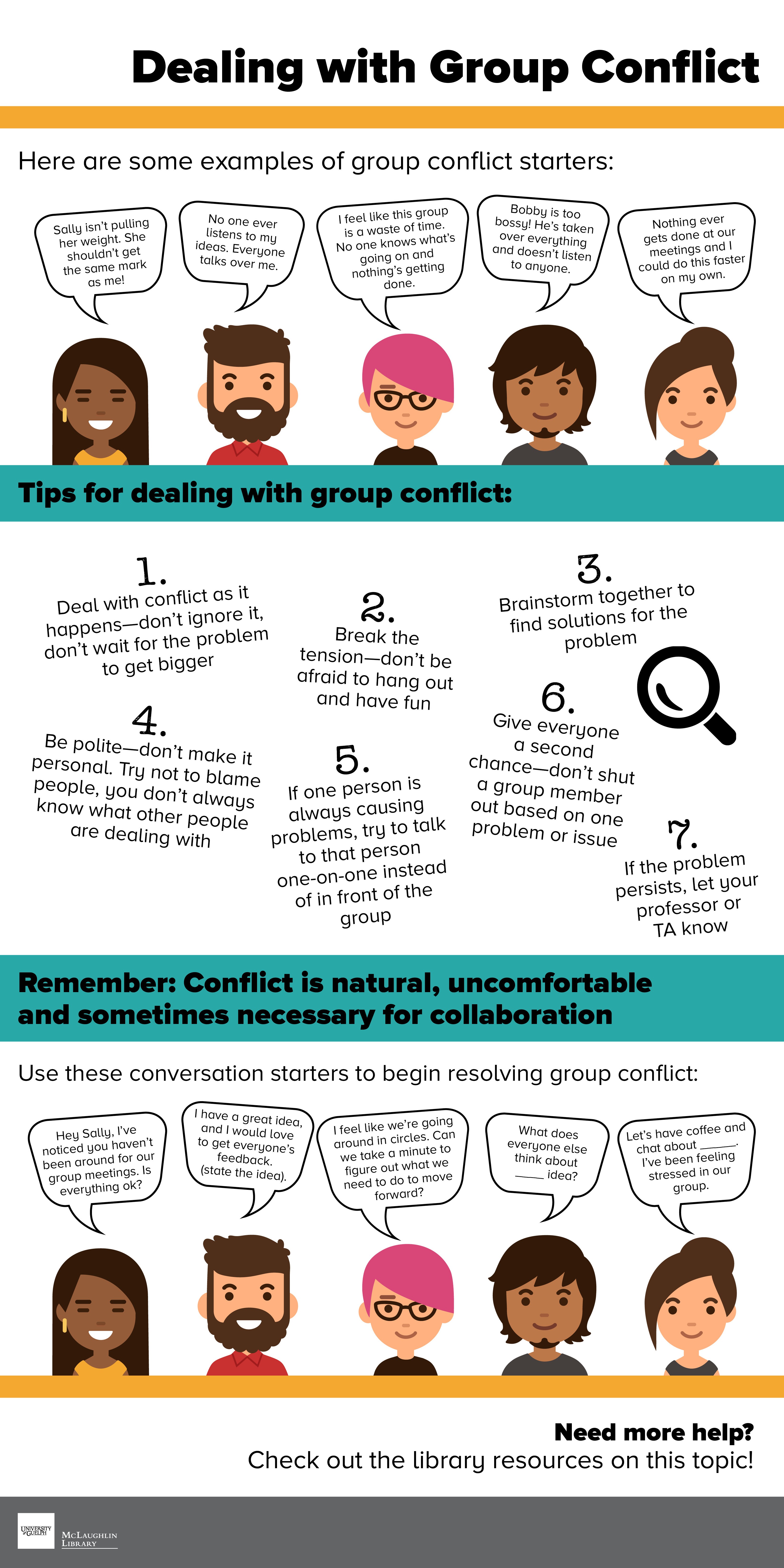Time commitment
2 - 5 minutes
Description
Learn some strategies to deal with group conflict.
Infographic

Transcript
Here are some examples of group conflict starters:
"Sally isn't pulling her weight. She shouldn't get the same mark as me!"
"No one ever listens to my ideas. Everyone talks over me."
"I feel like this group is a waste of time. No one knows what's going on and nothing's getting done."
"Bobby is too bossy! He's taken over everything and doesn't listen to anyone."
"Nothing ever gets done at our meetings and I could do this faster on my own."
Tips for dealing with group conflict:
1.Deal with conflict as it happens - don't ignore it, don't wait for the problem to get bigger.
2. Break the tension - don't be afraid to hang out and have fun.
3. Brainstorm together to find solutions for the problem.
4. Be polite - don't make it personal. Try not to blame people; you don't always know what other people are dealing with.
5. If one person is always causing problems, try to talk to that person one-on-one instead of in front of the group.
6. Give everyone a second chance - don't shut a group member out based on one problem or issue.
7. If the problem persists, let your professor or TA know.
Remember: conflict is natural, uncomfortable and sometimes necessary for collaboration.
Use these conversation starters to begin resolving group conflict:
"Hey Sally, I've noticed you haven't been around for our group meetings. Is everything ok?"
"I have a great idea, and I would love to get everyone's feedback (state the idea)."
"I feel like we're going around in circles. Can we take a minute to figure out what we need to do to move forward?"
"What does everyone else think about _____ idea?"
"Let's have coffee and chat about____. I've been feeling stressed in our group."
License

This work is licensed under a Creative Commons Attribution-NonCommercial-ShareAlike 4.0 International License.
Recommended
- Ask Chat is a collaborative service
- Ask Us Online Chat hours
- Contact Us

